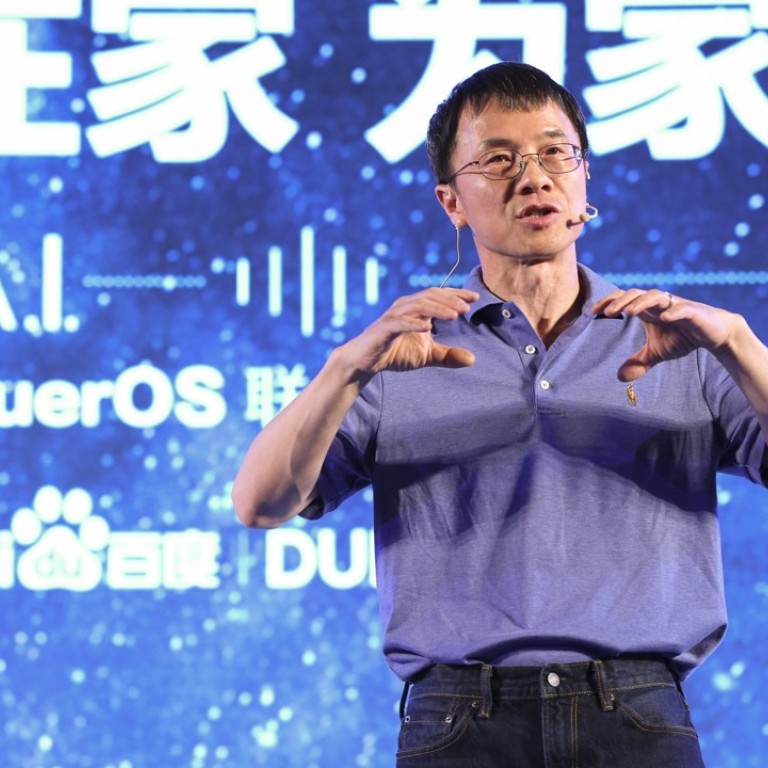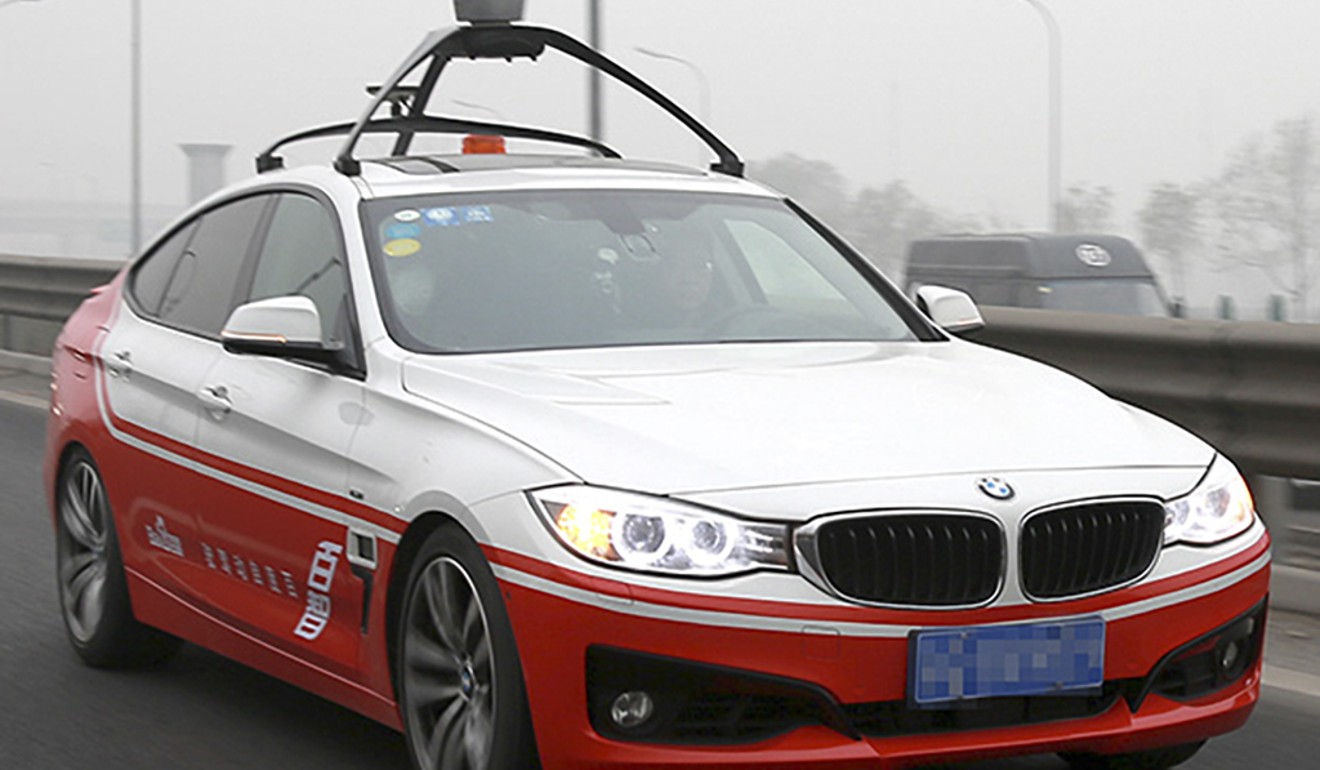
Baidu forms global alliance to accelerate AI adoption in self-driving cars
Baidu, the operator of China’s largest search engine, said it has formed what it claims to be one of the world’s largest and diversified open autonomous driving alliances with more than 50 partners as the company ramps up its efforts to accelerate the commercialisation of artificial intelligence.
The Beijing-based company said on Wednesday that more than 50 companies, including 13 Chinese cars makers and two western car firms – Ford and Daimler – as well as suppliers, component providers and ride sharing firms such as China’s UCAR and Singapore-headquartered Grab Taxi, have jumped on board. It is the first such partnership since Baidu launched its Project Apollo open autonomous driving platform in mid April.
Rather than produce self-driving cars itself, Baidu is banking on the open-source platform to “export its technology capability and integrate resources” for a “win-win situation” as artificial intelligence is set to reshape the entire car manufacturing industry, said Lu Qi, chief operating officer of the Nasdaq-listed Baidu.
Speaking at Baidu Create, the company’s inaugural AI Developer Conference in Beijing attended by more than 4,000 participants, Lu said Baidu is well positioned to “facilitate China to become the worldwide leader in autonomous driving in the coming three to five years”. He also announced that Baidu will set up subsidiaries in the United States and Singapore to further fuel Apollo’s development.
Baidu is competing in autonomous driving with the likes of Google in the US and Nissan in Japan, but the race is particularly important for the Chinese company as it seeks to transition into an AI-first company after its core search business was hit by Beijing’s tighter controls over online medical advertisements.
Baidu’s position as a distant No 3 among China’s top internet firms – known by the acronym BAT for Baidu, Alibaba Group and Tencent – has been at risk due to its shrinking revenue and market capitalisation, with e-commerce major JD.com catching up in market value.
Lu, an AI expert and former Microsoft executive who joined Baidu at the beginning of the year, said the company is already using AI to optimise its existing core businesses, such as web search and mobile Baidu apps. “I see a lot of potential to use AI to grow our new businesses, such as autonomous driving and DuerOS (an AI-powered operating system), into core businesses,” he said.

“AI is not factored into stock valuations yet, since it’s still at an early stage. Strategy wise, we are supportive of this direction. I think both Apollo and DuerOS will be key drivers for Baidu in the future,” said Ella Ji, New York-based analyst with China Renaissance Securities US, who has a “buy” rating on Baidu.
Compared with DuerOS, Apollo is a longer term and more complicated project, she added.
“From cooperating with 50 partners, Apollo will get a lot of driving and traffic data, which is the key differentiation asset when competing in the AI era.
“However, global tech and auto companies are also working on autonomous driving. Baidu needs to compete on resources and execution. The margin for error is very small,” Ji said.

